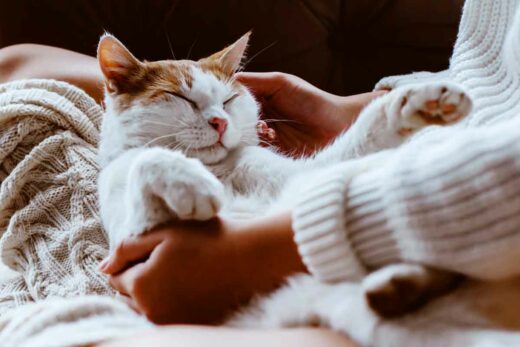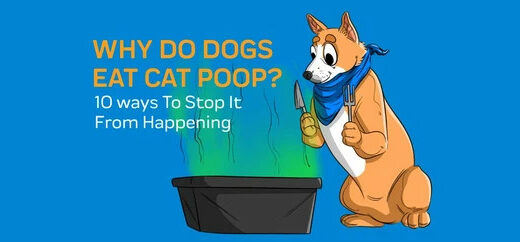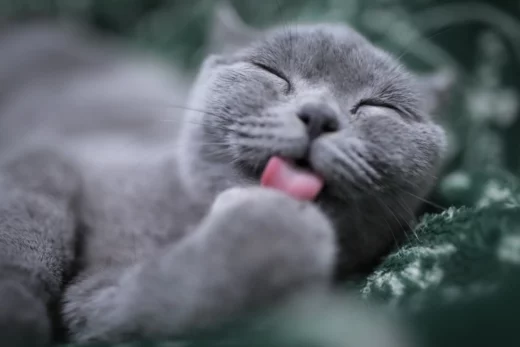
A cat’s loss of appetite can be a result of a picky eater or indicate illness. Either way, hunger strikes can take a serious toll on your cat’s health and should be addressed immediately. The first step to addressing your cat’s eating habits is to identify the reason for their appetite loss. So, why has your cat stopped eating? What can you do to get your cat to eat?
Possible reasons your cat won’t eat
If your cat was eating their meals without issues and is suddenly on a hunger strike, you may be wondering: why won’t my cat eat? Cats are well-known finicky eaters, but you shouldn’t assume that this is the only reason they aren’t eating. In fact, a cat that suddenly decides to stop eating is often a sign of a more serious problem. Here are some of the more common reasons why a cat won’t eat:
Health issues
A number of different health conditions may be responsible for a loss of appetite in cats, including:
- Kidney disease is one of the most common health issues in cats, particularly in older cats. Kidney disease is very unpleasant for cats. It often causes extreme nausea, vomiting, and changes in thirst and urination. Cats that are nauseous may seem interested in food, but then refuse it, or they may drool and lick their lips often.
- Congestive heart failure can result in fatigue and difficulty breathing, both of which can make your cat less interested in eating.
- Gastrointestinal problems, including parasites, pancreatitis, inflammation, colitis, acid reflux, irritable bowel disease, cancer, and indigestion can lead to appetite loss in cats.
- Respiratory problems can affect your cat’s sense of smell or ability to breathe, leading to a loss of appetite. Cats, just like humans, are less likely to want to eat when they can’t smell their food, so a stuffy nose can contribute to loss of appetite. Upper respiratory diseases may clog your cat’s nose and eyes with discharge, resulting in a temporary loss or restriction of sight and smell. Lower respiratory tract diseases may affect your cat’s lungs causing it to have difficulty breathing.
- Dental issues are very common in cats and can lead to appetite loss. Just like people, your cat may not want to eat if its mouth hurts. Changes in eating habits may indicate a wide variety of oral issues such as gum disease, abscesses, broken teeth, inflammation, tumors, or any other source of mouth pain.
Side effects
Although vaccines have been lifesavers for millions of animals, they do cause side effects in some. Following vaccinations, it is common for cats to experience mild, temporary nausea for a day or two. If your cat was recently vaccinated and shows signs of nausea and loss of appetite, this is not an immediate cause for concern and typically resolves within about 48 hours.
Nausea may also be caused by medications such as antibiotics or chemotherapy. Consult your veterinarian if your cat is nauseous and not eating while taking any medications or eating a prescription diet. Your veterinarian will be able to help you find ways to stimulate your cat’s appetite and get your feline friend the nutrients they need.
Preferences
Cats have a well-deserved reputation for being stubborn and fussy eaters. It’s entirely possible that your cat is refusing to eat just because they’re picky and don’t like their food for one reason or another.
Your cat may be very particular about the shape, texture, smell, temperature, or flavor of the food you give them. Cats, in general, take a long time to adjust to new types of food, so a recent change in diet could be the culprit of a sudden refusal to eat. A sudden rejection of the same food your cat has always eaten may occur if food manufacturers change flavors, ingredients, or if the food has gone bad.
Kittens may be picky about their food as they start transitioning from milk to solid food. During this period, they are likely just trying to figure out what they like, and this process may take a few tries with different varieties of food. Some cats like triangle-shaped crunchy kibble while others prefer solely canned wet food—every cat is different!
Stress
Like many people, cats tend to be creatures of habit and can become stressed when any aspect of their normal routine changes. Unfortunately, loss of appetite is a common symptom of stress in cats. Possible causes of stress include:
- Family changes such as a new family member (human or animal), visitors, or the absence of a family member can be disturbing to sensitive cats.
- Environmental changes like new furniture, home renovations, or a new house entirely takes some time to adjust to.
It is also common for pets, both dogs and cats, to have heightened stress around mealtime. This is particularly true for animals in multi-pet homes. Some shy cats may be intimidated or feel threatened by other animals when around food. This insecurity and stress can make eating a challenge and lead to appetite loss.





